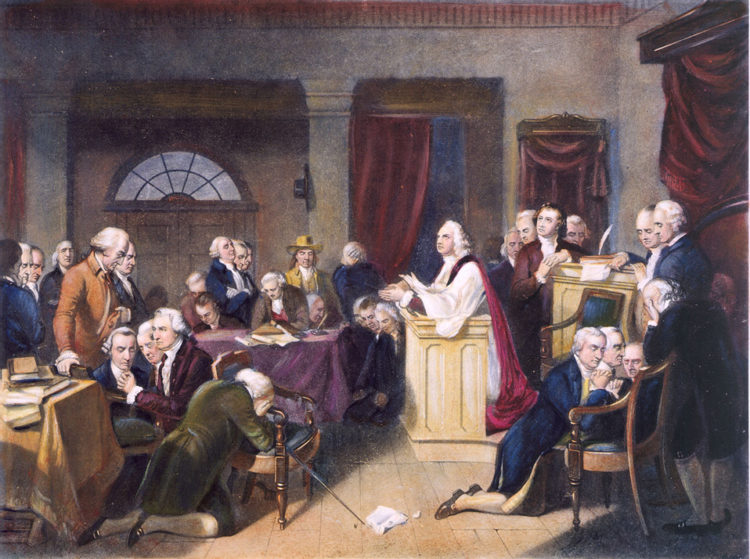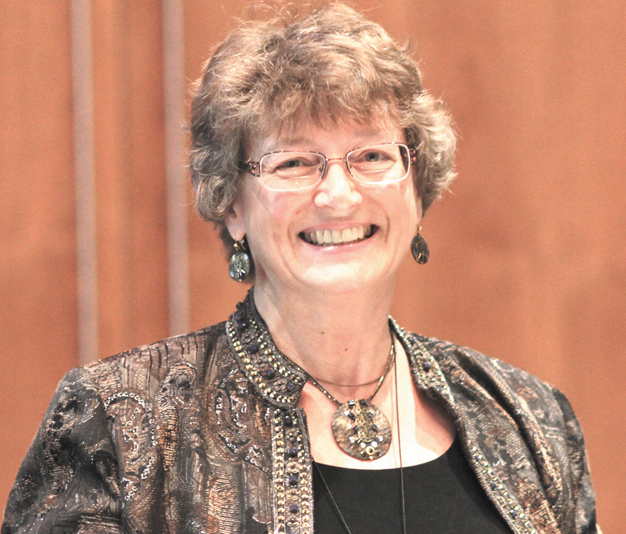A heritage of self-government

Our Dual Heritage Series
Jewish Family Education with Candace R. Kwiatek
From Facebook to federal buildings, the name-calling, insults, and innuendo have supplanted conversation. In the wake of recent tornadoes and hurricanes, looters have plundered stores and homes in Dayton, Houston, and Fort Lauderdale.
As an expression of displeasure, U.S. protestors have adopted the British invention of milkshaking — flinging milkshakes, often mixed with other ingredients such as raw eggs, pepper spray, or cement — at their political and cultural opponents.
Beyond the criminal underworld, sex crimes including misconduct with minors, rape, and trafficking have become commonplace among school staffs, Hollywood celebrities, and Wall Street financiers.
Sadly, it doesn’t take long to come up with examples of increasingly poor self-governance.
According to America’s founders, self-government broadly meant a government under the control and direction of its citizens rather than an outside authority — a democratic republic.
However, the founders cautioned that such a form of government could only be perpetuated by the self-governed, meaning a citizenry who could self-regulate their behavior, ambitions, and passions, explains David Gowdy, founder of The Washington, Jefferson, and Madison Institute.
“To this end, the founders fundamentally believed that the ability to govern ourselves rests with our individual and collective virtue (or moral character).”

This notion was famously captured by John Adams: “Our Constitution was made only for a moral and religious people. It is wholly inadequate to the government of any other.”
Samuel Adams further emphasized the vulnerability of self-government without a virtuous citizenry: “Neither the wisest constitution nor the wisest laws will secure the liberty and happiness of a people whose manners are universally corrupt. He therefore is the truest friend of the liberty of his country who tries most to promote its virtue.”
Even more bluntly, Benjamin Franklin concluded, “Only a virtuous people are capable of freedom.”
So where did the founders get their revolutionary ideas that linked liberty, self-government, and virtue?
It’s not surprising that they were inspired by the Bible.
“Every founder, no matter what his theology was preoccupied with the Bible,” writes social and political commentator Dennis Prager.
Prof. of American religious history James Byrd adds, “The Bible was the most read book (in revolutionary America), and almost everyone knew basic biblical teachings and stories.”
For America’s colonies, the most animating of its messages was liberty, brought to life in the tale of the Israelites’ Divine deliverance from slavery under a tyrannical Pharaoh to self-government guided by divinely ordained moral precepts revealed at Mt. Sinai.
So strong was America’s belief in the unalienable right to liberty, it was inscribed in the Declaration of Independence. Americans’ political, religious, and economic freedoms, together with the freedoms of assembly, speech, and the press, were specified in the Constitution’s Bill of Rights. And to protect it all, the Constitution provided a blueprint for a small government with limited enumerated powers. Liberty is at the core of the Bible, and it is the essence of the American idea.
But liberty is no simple thing; unrestrained, it leads to anarchy. Despite being created in God’s image, with free will and the ability to recognize good and evil, people with unlimited liberty will ultimately follow the impulses that lead to satisfying their own needs and desires.
And yet, human nature craves accountability, a feedback loop of praise or blame that fosters awareness of actions and their consequences and personal growth. There are only three main sources of accountability, Prager explains: “If people are not morally accountable to an all-powerful state, they need to be accountable either to themselves — their own (subjective, rationalizing, self-centered, fallible) hearts and consciences — or to a God who is moral and who judges each individual…”
As for accountability, the Exodus was once again the founders’ touchstone. Seven weeks after leaving Egypt, the Israelites arrived at Mt. Sinai where they learned that liberty isn’t a free-for-all.
There, God gave them practical and moral laws designed to cultivate virtue, necessary for building a healthy and long-lived society.
And they would be accountable to God, the ultimate source of liberty and morality — not government, not their own hearts. The Israelites’ response, “Na’aseh v’nishmah, We will do and we will understand,” echoes in America’s official motto, “In God We Trust.”
One of the first versions of the phrase In God We Trust appeared in Francis Scott Key’s 1814 The Star-Spangled Banner. In just a few words, he captured both the foundation and the transcendent nature of American self-government.
We trust that God is the source of liberty — not fickle people or governments. We trust that God is the source of Divine rights, absolute and inviolable. We trust that God is the source of morality — a single objective standard of good and evil, not the subjective opinions of other people.
We trust that God demands moral behavior from everyone and judges every individual accordingly. In other words, God is the essence and basis of American values.
On the eve of the 1984 Presidential election, President Ronald Reagan addressed the nation. “The greatness of America doesn’t begin in Washington,” he reminded us, “it begins with each of you in the mighty spirit of free people under God, in the bedrock values you live by each day in your families, neighborhoods, and workplaces.”
Liberty. Self-government. Virtue. These are part of Judaism’s legacy to the world. Yet no other country, religion, or culture has ever been founded on and guided by these three transcendent ideas except America. But some days I wonder: can we keep it?
Literature to share
The Color of Love: A Story of a Mixed-Race Jewish Girl by Marra Gad. “‘How do you not hate everyone?’ (my friend Rosa) frequently asks after I share a story. ‘Because I’m the luckiest girl on earth,’ I say.” In her own voice, Marra tells her story of being born part-white, part-black, and Jewish, and adopted by two fiercely loving Jewish parents in the 1970s. Neither the general nor Jewish communities of Chicago were ready for someone like her. Yet she flourishes. An absorbing, extremely well-written tale of resilience, goodness, the tragedy of racism, and what it really means to be welcoming and to “love your neighbor as yourself.” Highly recommended.
Gina from Siberia by Jane Bernstein. What is it like to move nearly 6,000 miles to a completely different country? This story recounts the experiences of one family that made the arduous journey from the former Soviet Union to a new home in New York. Their fears, challenges, discoveries, and new friendships are gently but honestly expressed through the eyes and antics of the family pet. Of particular note are the captivating illustrations: color and details enhance the narrative and invite discussion. An excellent addition to a youngster’s bookshelf.
To read the complete October 2019 Dayton Jewish Observer, click here.


